Topic of the Month
50th Anniversary of K-water’s Relocation to Daejeon
50 Years of History,
100 Years of the Future to Build Together
October 15, 2024 marks the 50th anniversary of K-water’s relocation to Daejeon. Although the relocation from Seoul to Daejeon was not an entirely smooth process, K-water has become the No. 1 public corporation representing Daejeon, growing with the community. Celebrating the 50th anniversary, this edition of Water, Nature, and Humankind looks back on the past 50 years since the relocation and looks ahead to the future.
📝Text by. Editorial Team / 📷Source. Public Relations Department of K-water
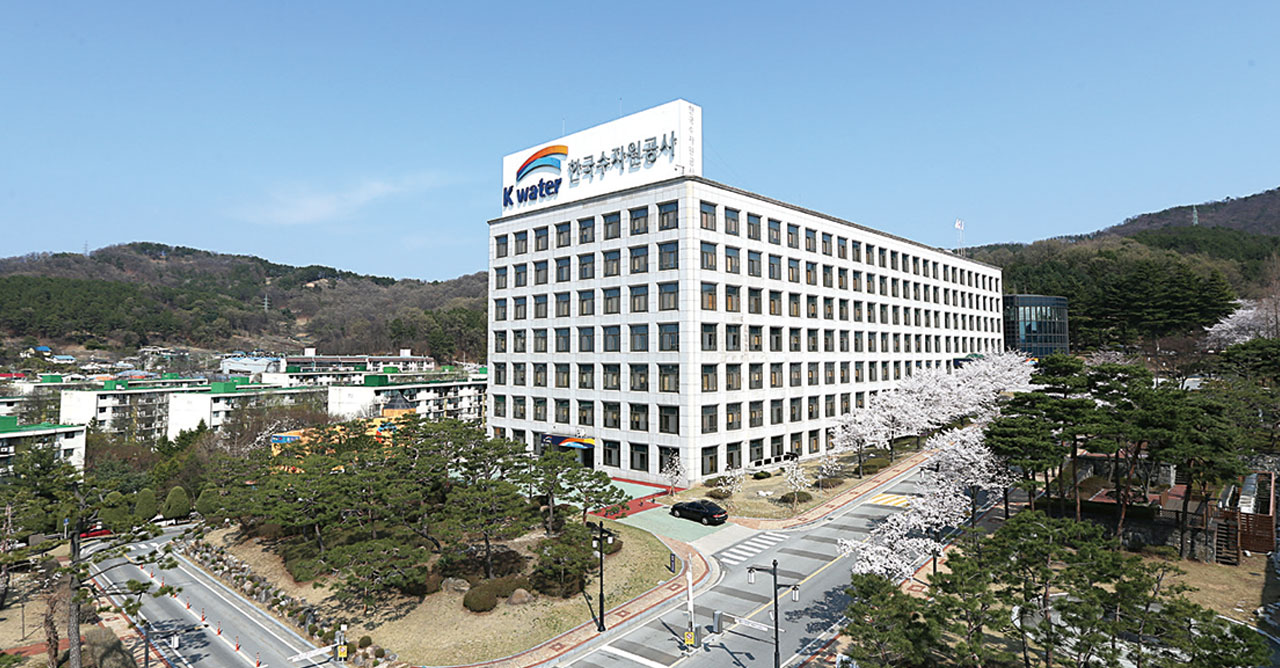
K-water at the Forefront of Public Sector Relocation to Regional Areas!
In the 1970s, the government embarked on a series of population dispersion policies to address the excessive population concentration in Seoul and metropolitan area surrounding the capital city. In synch with the government initiative, K-water became the first public institution to relocate its headquarters to a regional area to which it had no prior connection. K-water (then known as the Industrial Sites and Water Resources Development Corporation) chose Daejeon as its new home. K-water was playing a leading role in building multi-purpose dams and national industrial complexes across the country back then, with branches and offices nationwide. Given its geographical scope of operations, Daejeon was an ideal location for its new headquarters because two major national highways—Gyeongbu Expressway and Honam Expressway— crossed paths in the city. In March 1973, the relocation decision was finalized and K-water moved its head office from Jeong-dong, Seoul to Yeonchuk-ri, Hoedeok-myeon, Chungcheongnam-do (currently known as Yeonchuk-dong, Daedeok-gu, Daejeon Metropolitan City).
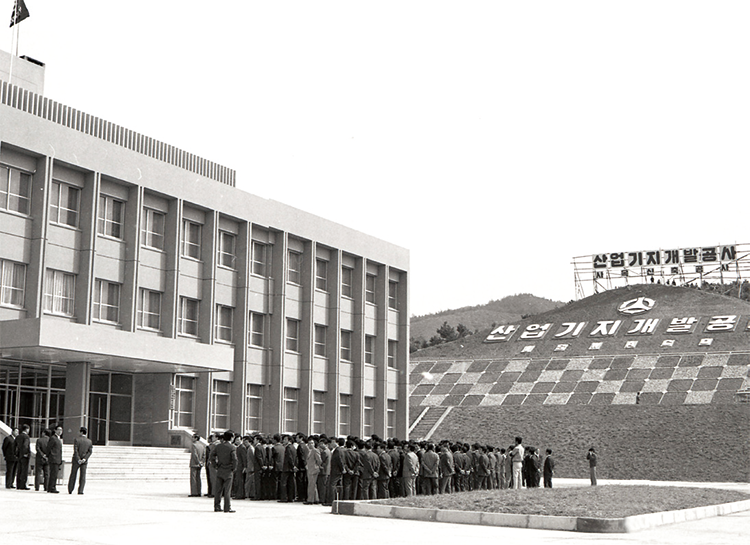
Laying the Foundation for Balanced Development of the National Economy
The Korean government announced the blueprint for the heavy chemical industry in 1973. The government’s decision was aimed at laying the groundwork for promoting the fast-paced growth of the national economy and achieving economic self-sufficiency. In tandem with the national agenda of economic development, K-water was actively involved in creating the framework for the growth of Korea’s heavy chemical industry by playing an important role in building industrial complexes and Daedeok Science Town to develop technology crucial for the industry’s growth. In addition, K-water led the construction of infrastructure including waterworks and roads in major regional cities as part of national projects to build industrial complexes in areas other than Seoul and metropolitan area. Consequently, many people moved out of Seoul, looking for jobs in these areas; thus creating the population dispersion effect. As a pillar player in the creation of social infrastructure across the country, K-water performed a significant role in transforming Korea into an industrial country.
-
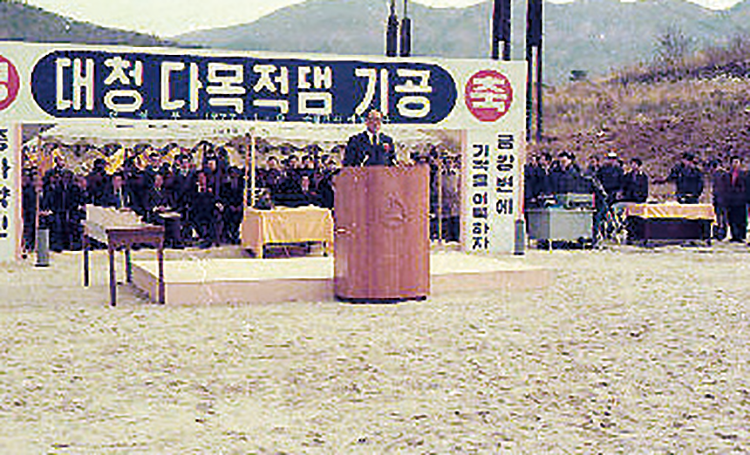
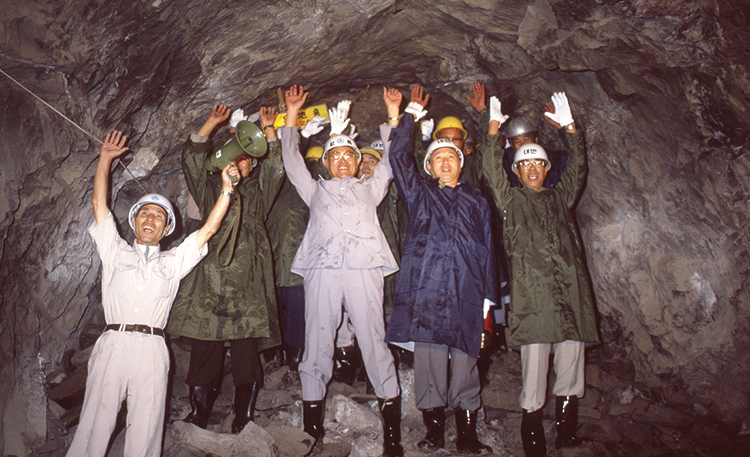
1. Groundbreaking ceremony for Daecheong Multi-Purpose Dam (January 1977)
2. Ceremony celebrating the successful water passing through the waterway in Daejeon (September 1979) -
Let’s Make a Miracle on Geumggang Riverside
K-water built Daecheong Multi-purpose Dam, the second-largest after Soyanggang Dam. Completed in December 1980, the dam is located in the Daejeon/Chungcheong area, the center of the Korean Peninsula, performing three major roles: mitigating chronic flood damages in the downstream area of Geumggang River; supplying water for domestic, industrial, and agricultural uses in Chungcheong and Jeonbuk provinces; and generating electricity. The dam creates spillover effects in areas that surround it. In 2024, a total of KRW 12.6 billion was earmarked for Daedeok-gu and Dong-gu in Daejeon, Cheongju City, Okcheon-gun, and Boeun-gun. The budget is being used for a variety of income-boosting and welfare-enhancing projects including healthcare, transportation, housekeeping and caregiving service for the mobility-impaired, home improvement, scholarship, and educational equipment.
Daejeon owes much of its rise as the country’s No. 1 science and technology hub to Daedeok Science Town, and K-water was also involved in the creation of the research hub. The country’s first technology research complex was built on a 27.8㎢ area for research facilities and a residential area that K-water prepared from 1978 to 1985. The cost of land development amounted to KRW 13.89 billion. Once Daedeok Science Town was completed, many research institutions moved in. Among the tenants were Chungnam National University and KAIST, which played a leading role in developing Korea’s heavy chemical industry and promoting collaboration between academe and research; thus drastically improving science and technology and college education in Korea.
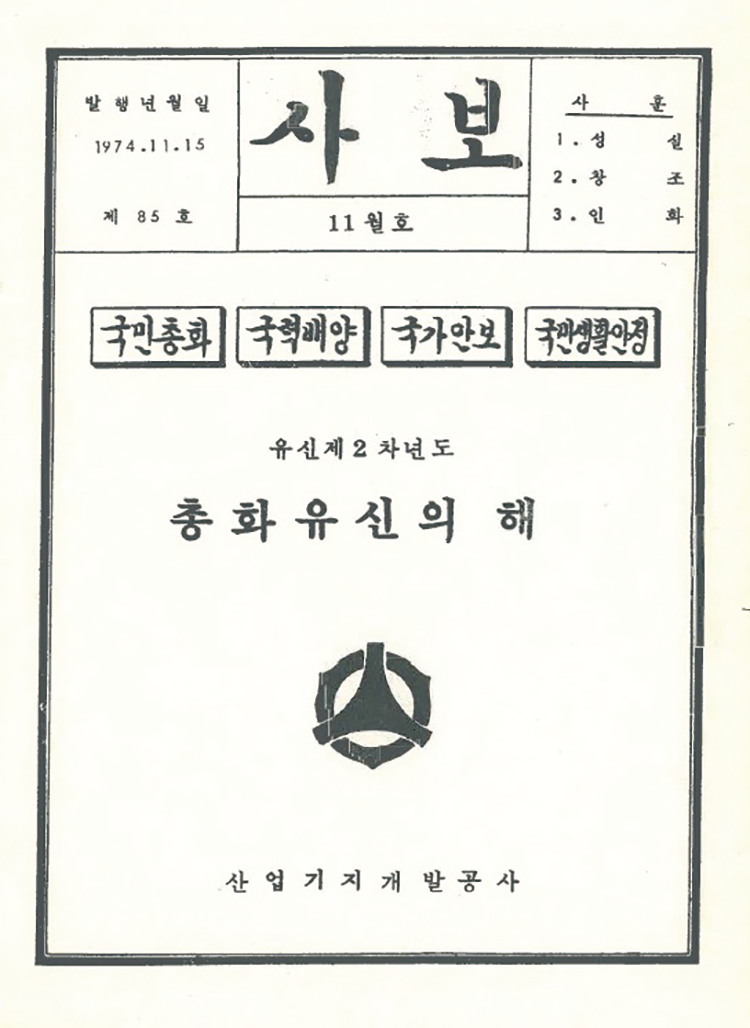

Going forward, we should work closely with the city of Daejeon to promote local development while fulfilling our job. Thus, we’ll contribute to the development of Daejeon and its neighboring area and act as the guiding light for the region to achieve prosperity.
- Excerpt from the President’s Message in the K-water Monthly Newsletter published in November 1974
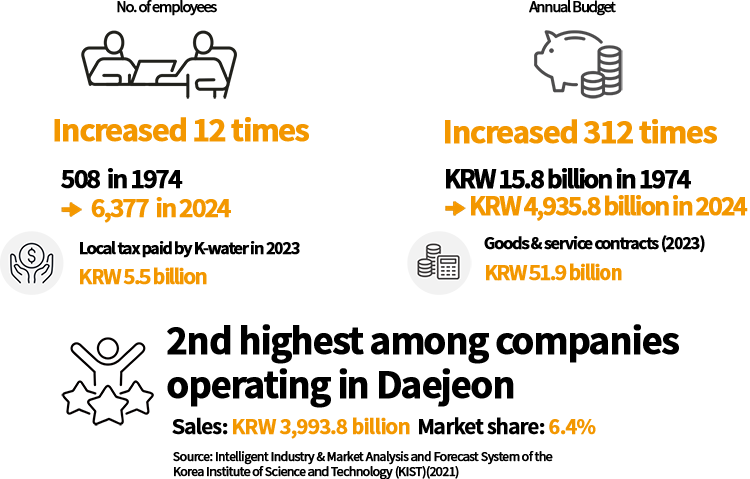
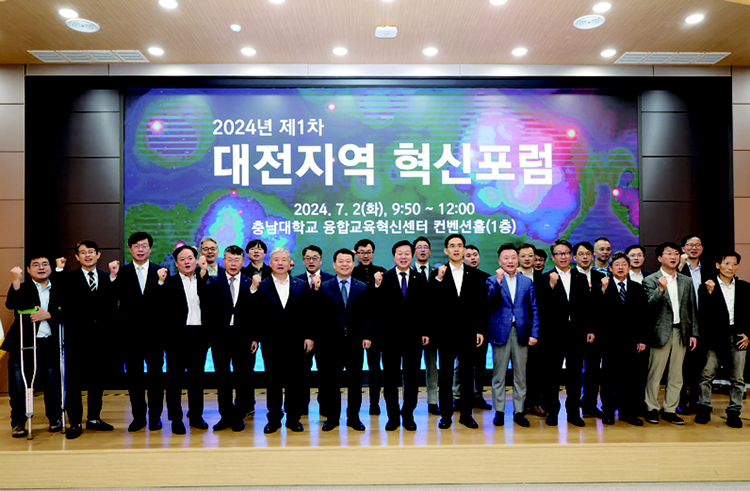
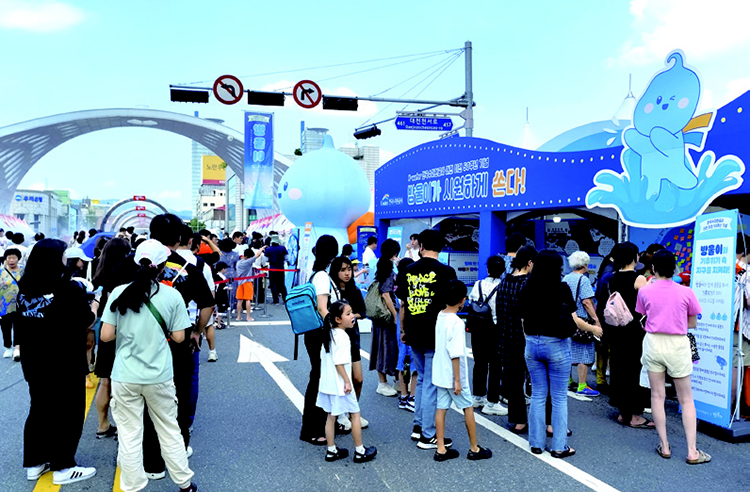
1. Daejeon Innovation Forum (July 2024)
2. K-water participating in Daejeon 0 O’ clock Festival (August 2024)
Marking the 50th anniversary of its relocation to Daejeon, K-water as the city’s leading public institution has been making diverse endeavors to pioneer a new era of balanced regional growth. Specifically, K-water and Daejeon City signed an agreement for the promotion of balanced regional growth in January and met with the leaders of major local corporations to discuss ways of creating an ecosystem of water-specializing, innovative global corporations in Daejeon in June. In July, K-water and 18 other organizations based in Daejeon including Chungnam National University and Daejeon Chamber of Commerce & Industry held the 1st Daejeon Innovation Forum Seminar to share ideas on how to train local innovation manpower, develop innovative water-related technology, and foster the water industry. In addition, the Daejeon-born ODA Alliance has been launched to facilitate the overseas expansion of innovative water corporations.
K-water is actively involved in local festivals and cultural events as a channel of close communication with local residents, constantly exploring ways to promote shared growth with the local community; thus adding to the momentum for a new era of balanced regional growth. Given the shared growth achieved over the past 50 years, hopes remain high as to what K-water and Daejeon City can achieve together over the next 100 years.
